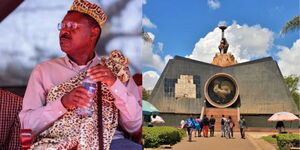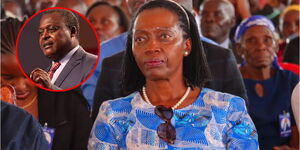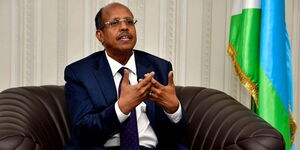The political arena in Kenya has been characterised by the formation of alliances along tribal lines, something that has contributed to the sluggish development of the country and the tribal clashes that followed elections as reported by Opendemocracy.net.
For decades, Kenya has been plagued with divisive politics as evidenced by the political hierarchy in the country and the allocation of resources.
On November 27, Narok senator Ledama ole Kina critiqued the government stating that some communities in the country were marginalised while others dominated major positions in the country.
However, the issue of tribalism in Kenya dates back to the establishment of colonial rule by Britain in Kenya, the New York Times reported.
Opendemocracy.net attributed Kenya's tribalism as a product of colonialism, urbanisation, and the political culture that befell independent Kenya.
According to the publication, Kenyan communities lived in harmony, in distinct cultural backgrounds, spoke their own languages and maintained trading relationships except for the few instances when they disagreed on water and herding grounds.
When the British colonialists graced the country, with them, they brought the principle of divide and rule. They augmented disparities between the different communities in the country, creating a sense of distrust amongst them.
As a result, they created an incubator for the development of negative tribal stereotypes that rocked Kenyan politics.
For instance, the daily reported that the colonialists sold to the GEMA communities an impression that the Luo were lazy, uncircumcised and unreliable, while they sold old western communities a notion that the GEMA were schemers, liars, untrustworthy, and arrogant.
As Britain ruled over Kenya, they discouraged the establishment of regional leadership and instead preferred to have leadership at tribal levels, and thus senior chief from every community.
This was meant to deter Kenyans from the formation of larger united blocks, as it would speed up the need for a revolt against the British rule.
Unfortunately, it stuck with Kenya post-independence. In 1963 the tribal division in the country was manifested in the formation of the Kenya African Democratic Union(KADU) and Kenya African National Union(KANU).
KANU was largely dominated by two communities, the Kikuyu and the Luo. On the other hand, KADU was comprised of the rest of the communities in Kenya that intended to avert being dominated by the Kikuyu and the Luo.
The publication reported that former President Jomo Kenyatta's rule was characterised by favouritism for his tribesmen, further establishing a political disparity between his community and the rest.
Tribalism infiltrated the political system to the extent of the formation of political parties along tribal lines. Just to mention, DP was associated with the Kikuyu, UDP/LDP the Luo, FORD People the Kisii, FORD Kenya the Luhya, SDP the Kamba, and SPK coastal Kenya.












